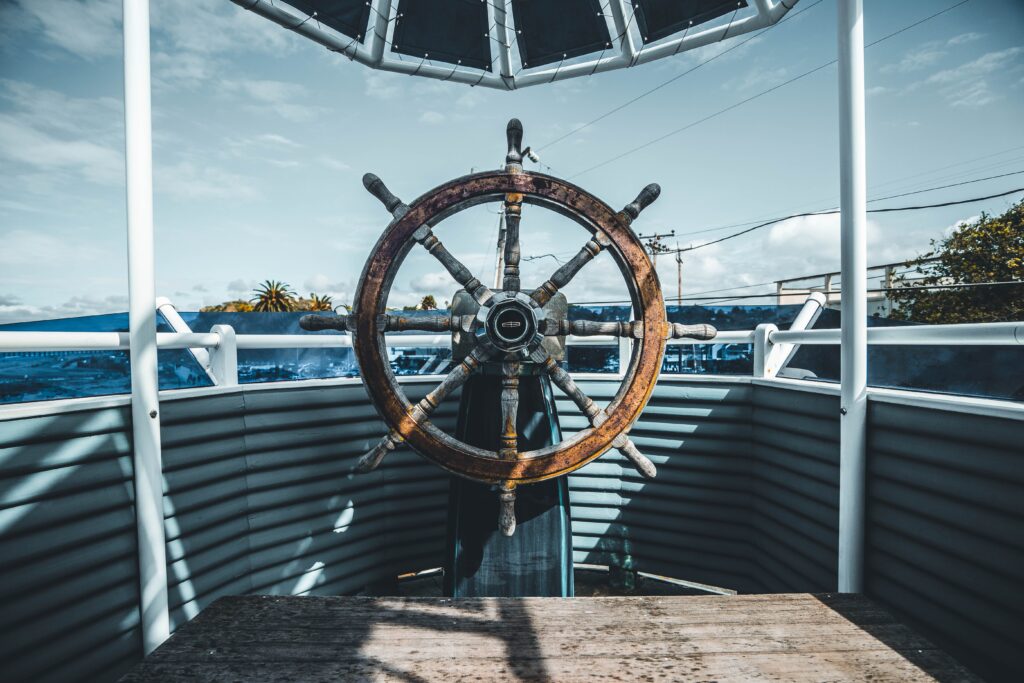Global S&T Development Trend Analysis Platform of Resources and Environment
| Rocking the boat on shipping emissions | |
| admin | |
| 2021-11-22 | |
| 发布年 | 2021 |
| 语种 | 英语 |
| 国家 | 国际 |
| 领域 | 气候变化 |
| 正文(英文) |  Image: Joseph Barrientos, Unsplash This week’s talks at the International Maritime Organisation’s (IMO) Marine Environment Protection Committee (MEPC) must chart a speedy and ambitious course towards zero-emissions shipping.Today (22 November), the International Maritime Organisation’s (IMO) Marine Environment Protection Committee (MEPC) hit the waves again – but, this time, with potential rays of hope on the horizon. Momentum is building to actually address the climate pollution caused by the shipping industry, but IMO needs to move faster to catch up on the delays caused by those seeking to continue to rely on fossil fuels. The previous session of the MEPC in June ended in acrimony, with little to no progress to show for a week of sluggishly slow virtual negotiations (except for painful technical difficulties making it even harder for less developed countries to get their voices heard, even if they are and will continue to be the hardest hit by the climate breakdown). The June session’s main outcome was a totally insufficient agreement on climate measures up to 2030. The target to increase energy efficiency by 1.5% annually is too distant from the 7% yearly improvement needed for the IMO’s short-term measures to be compatible with the Paris Agreement. In addition, there is no enforcement mechanism and a level of aspiration not compatible with IMO-agreed climate targets. Despite the United States, the EU and several others pushing for more ambitious targets, progress was stymied by climate laggards; such as Argentina and the Cook Islands (the latter’s negotiator has received hundreds of thousands of euros to represent an industry lobby group). Moreover, several key climate topics (such as black carbon) were just skipped altogether. Ray of hopeWhile COP26 itself did not lead to any substantial progress on shipping emissions, on the sidelines some major shipping players (companies AND countries) made several major announcements that show support for tackling the climate impacts of this sector is mounting:
One tool that would help bring all these declarations and calls to fruition would be a strong international carbon pricing tool at the IMO – a so-called market-based measure (MBM) All hands on deckDiscussions on MBMs made some progress back in June. However, too much time was wasted on work plans without a clear outcome and the toothless and absurd International Maritime Research Board’s (IMRB) proposal that would only lead to a cost of $0.70 per tonne of greenhouse gas pollution, which is approximately 100 times cheaper per tonne of carbon than the EU’s current carbon price. This week’s talks will see those negotiations continue, hopefully building up speed in the coming weeks – including on the Marshall and Solomon Islands’ more ambitious proposal of a $100 per tonne levy. But what makes a market-based mechanism a good one? Carbon Market Watch submitted a paper to the IMO (together with our partners in the Clean Shipping Coalition) highlighting exactly which principles an IMO MBM has to live up to. In short, it must:
Good proposals meeting those principles must be fast-tracked if the shipping industry is to make a meaningful contribution to tackling the climate crisis. At present, a sense of urgency is lacking throughout many of the IMO countries’ delegations, and the maritime industry needs to urgently set sail on a more daring course. A mandatory and ambitious carbon levy, where revenues are used for climate justice and re-invested in innovation and putting climate-neutral ships on the water could be key for success in an industry that is at risk of becoming rudderless and crashing against the rocks of destructive climate inaction. |
| URL | 查看原文 |
| 来源平台 | Carbon Market Watch |
| 文献类型 | 新闻 |
| 条目标识符 | http://119.78.100.173/C666/handle/2XK7JSWQ/341785 |
| 专题 | 气候变化 |
| 推荐引用方式 GB/T 7714 | admin. Rocking the boat on shipping emissions. 2021. |
| 条目包含的文件 | 条目无相关文件。 | |||||
| 个性服务 |
| 推荐该条目 |
| 保存到收藏夹 |
| 查看访问统计 |
| 导出为Endnote文件 |
| 谷歌学术 |
| 谷歌学术中相似的文章 |
| [admin]的文章 |
| 百度学术 |
| 百度学术中相似的文章 |
| [admin]的文章 |
| 必应学术 |
| 必应学术中相似的文章 |
| [admin]的文章 |
| 相关权益政策 |
| 暂无数据 |
| 收藏/分享 |
除非特别说明,本系统中所有内容都受版权保护,并保留所有权利。
修改评论